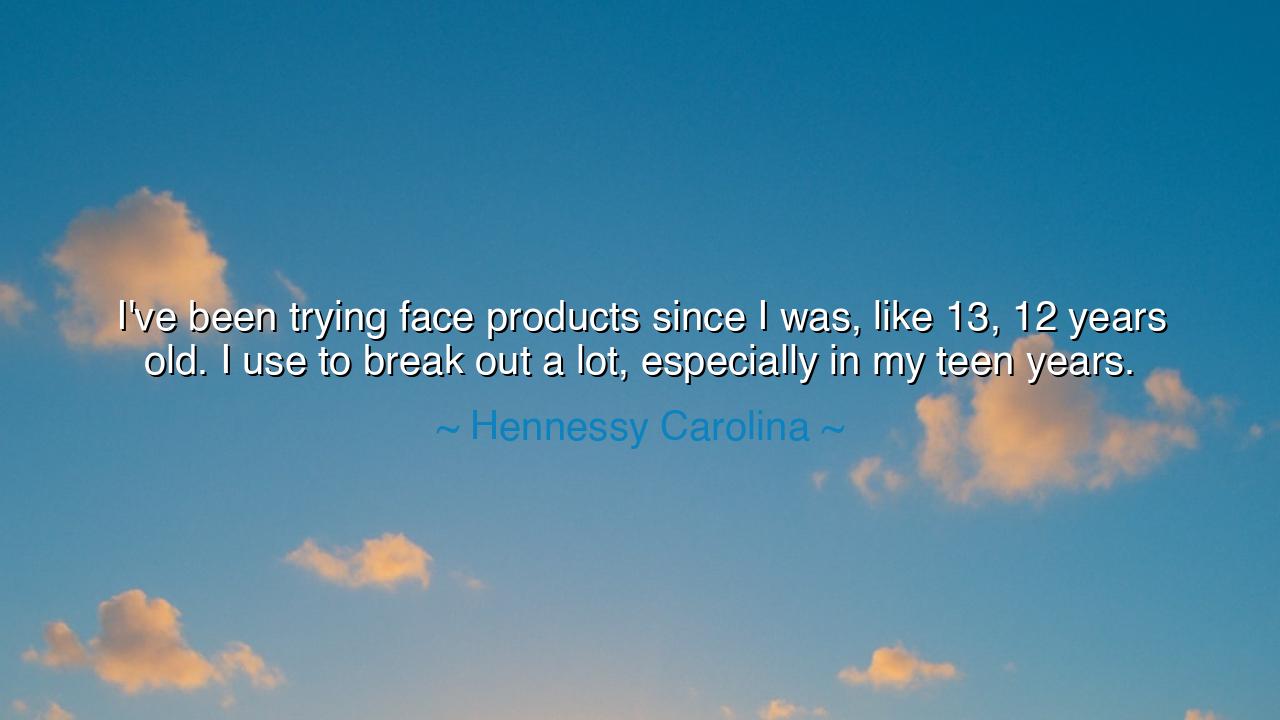
I've been trying face products since I was, like 13, 12 years
I've been trying face products since I was, like 13, 12 years old. I use to break out a lot, especially in my teen years.






Hear the honest and vulnerable words of Hennessy Carolina, who confessed the struggles of her youth: “I’ve been trying face products since I was, like, 13, 12 years old. I used to break out a lot, especially in my teen years.” At first, these words may seem to speak only of skin, of beauty, of the outward face. Yet beneath them lies a timeless truth: that adolescence is a battlefield not only of the heart and mind, but of the body, where the young soul wrestles with identity, self-worth, and the gaze of others.
For to break out is not simply to suffer blemishes of the skin—it is to feel the weight of imperfection in a world that demands perfection. The teen years are an age of becoming, when the spirit longs to be seen, admired, and accepted. Yet it is also the age when the body betrays itself with change and imbalance. Hennessy’s words echo the universal cry of youth: the struggle between who we are within and how we are seen without. To turn to face products is more than vanity—it is the attempt to reconcile the outer shell with the inner longing to belong.
History has shown us that even the mighty were not free from the pains of appearance. Abraham Lincoln, as a young man, was mocked for his gangly frame and rough looks, yet within that frame burned a fierce spirit of integrity. Queen Elizabeth I, scarred by smallpox, turned to white powders and paint to preserve the image of majesty before her people. Like Hennessy, they wrestled with the divide between appearance and essence, knowing how harshly the world can judge what it sees.
Hennessy’s words also remind us of resilience. For though she struggled, she did not hide. She experimented, she sought remedies, she learned. From the tender age of twelve or thirteen, she confronted her challenge directly, rather than surrendering to shame. This persistence reveals the deeper power behind her words: that growth comes not from flawless beginnings, but from endurance through imperfection. The strength to face oneself, even in moments of blemish, is the strength that later becomes confidence and self-expression.
Yet her struggle is not hers alone. It is the shared struggle of every youth who has stood before a mirror and wished to see something different. In this, her voice becomes a beacon for others, saying: you are not alone, and even those who shine in the public eye have walked through the same trials. Her confession transforms private pain into collective understanding, reminding us that beauty is not perfection, but authenticity.
The meaning of her words is thus: that the outward battles of the body are not trivial, for they shape the soul’s journey toward self-acceptance. The teen years are a crucible where insecurity may either shatter or strengthen, where shame may either wound or transform into confidence. To endure this trial, as Hennessy did, is to emerge with wisdom that beauty products alone cannot give—the wisdom of knowing one’s true worth is deeper than the skin.
Therefore, my child, take this lesson: do not despise your imperfections, nor let them silence your spirit. Care for yourself, yes—use the remedies you can—but know that the true glow comes not from the skin but from the soul that refuses to be diminished by blemish or scorn. Remember that every scar, every mark, every imperfection is part of your becoming, a step toward the strength and beauty that lasts.
So let Hennessy Carolina’s words echo beyond their humble origin: “I used to break out a lot, especially in my teen years.” Take them as a reminder that even struggle can be a teacher, that resilience grows from insecurity, and that the truest beauty is not in the absence of flaws but in the courage to face them and rise.






AAdministratorAdministrator
Welcome, honored guests. Please leave a comment, we will respond soon